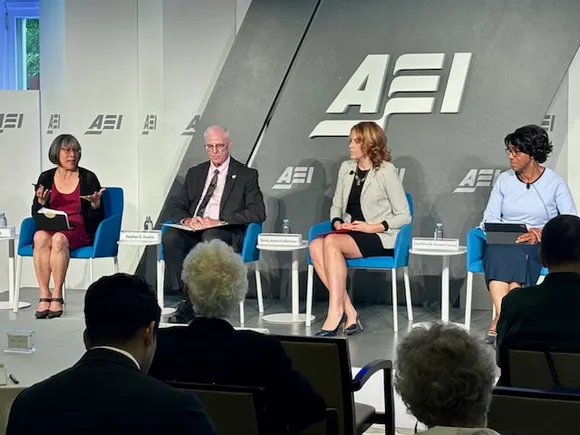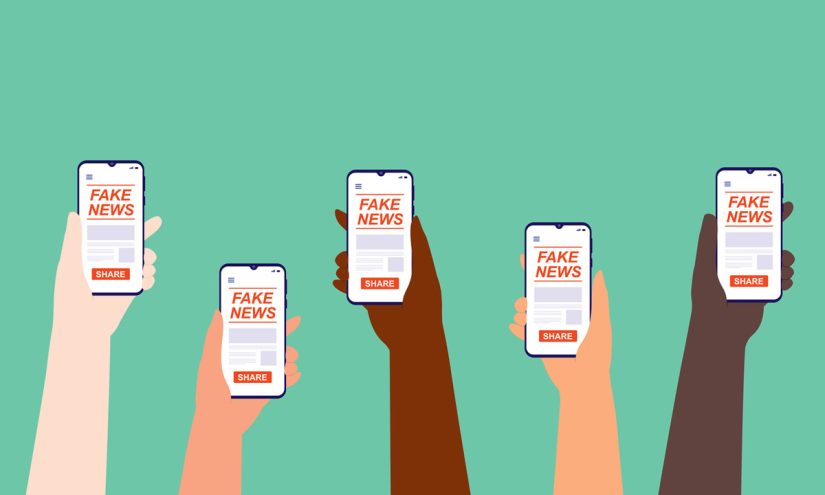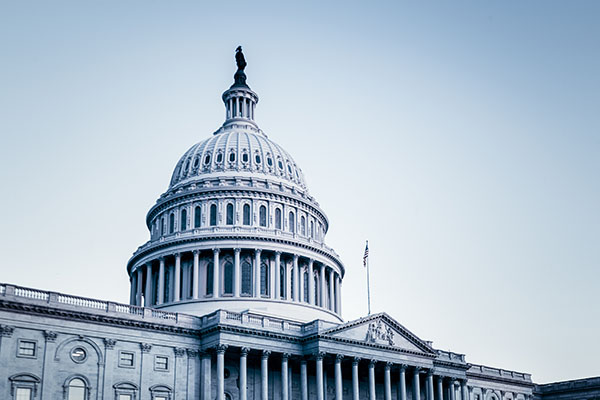WASHINGTON, D.C. — In Maryland’s Baltimore City Public Schools, educators are making home visits to determine families’ barriers to school attendance.
In Virginia, a state-level task force is helping pediatricians and school nurses educate parents on the importance of school attendance and when to keep students home if they are truly too sick to attend school.
And several states are prioritizing attendance campaigns through accountability measures, additional funding, data-informed decision-making and elevated attention within governors’ offices.
These are some of the school attendance approaches school system leaders shared during a Thursday event focused on combating chronic absenteeism. The event was hosted by Attendance Works, EdTrust and American Enterprise Institute.
“If we don’t have our students there, we will not see the outcomes that we’re looking for,” said Charlene Russell-Tucker, commissioner of the Connecticut State Department of Education.
Nat Malkus, a senior fellow and deputy director of education policy studies at AEI, said that while data shows the national chronic absenteeism rate is improving, there’s much more work to do to get school attendance back to pre-COVID-19 levels.
In 2024, the national chronic absenteeism rate was 23.5%. That’s an improvement from a high of 28.5% in 2022, but still higher than the 13.4% recorded in 2017 and 15.2% in 2018, Malkus said. Chronic absenteeism is measured as missing 10% or more days in a school year — or about 18 days — for any reason.
In 2022, “almost every district in the nation saw [chronic absenteeism] increases, most of them sizable,” Malkus said. Although overall attendance improved in 2023 and 2024, the increases weren’t as high as the education field had hoped, he said.
“This is a long-haul game” to get schools operating with consistent attendance “for our educational and economic future,” Malkus said.
He commended 16 states and Washington, D.C., for committing to reduce chronic absenteeism by 50% over five years. At an event last year, the three organizations called on all states to make this commitment.
“States and districts have made progress, and we should be happy for that,” said Malkus, adding that improvements in attendance show “progress on this front is doable, and that the goals are achievable.”
Trying different solutions
Stephen Dackin, director of the Ohio Department of Education and Workforce, said that his state has committed to the 50% reduction in chronic absenteeism. Ohio hit a high of 30% in 2021-22 but is now down to 25.6%.
Dackin said what has helped improve attendance is the use of a multi-tiered system of supports that provides increased levels of interventions where needed and an integrated review of students’ academic and behavioral data in developing interventions.
“That is a game-changer, if we do it well in Ohio,” Dackin said.
Emily Anne Gullickson, superintendent of public instruction in Virginia, said the state had a peak chronic absenteeism rate of 20.1%, which a case study by Attendance Works shows occurred in 2021-22. As of spring 2024, the rate was 15.7%. More recent attendance data is expected to be released soon, Gullickson said.
A state-level task force launched the ALL (Attendance, Literacy and Learning) Initiative in September 2023. The state board of education incorporated chronic absenteeism into its accountability system and included it as part of a readiness indicator for elementary, middle and high schools, Gullickson said. Additionally, Virginia is studying model programs and looking at how to scale those practices.
In Connecticut, Russell-Tucker said the chronic absenteeism rate was at a high of 23%, which state data shows occurred in 2021-22. Now, it’s at 17.2%. The state board of education set a goal of 6% by 2028.
To help better understand the problem and to implement solutions, the attendance data is collected at the state level monthly. That data is then disaggregated by student subgroups. That data helps the state work with the districts so they can intervene immediately, Russell-Tucker said. Additionally, the state has a line item in its budget addressing student attendance.
She called the need to improve school attendance an “all hands on deck” moment.
The state’s Learner, Engagement and Attendance Program — or LEAP — supports home visits to strengthen school-family relationships and to reduce school attendance barriers for students, Russell-Tucker said.
Evaluation studies of LEAP show that six months after the first LEAP visit, student attendance rates improved by about 10 percentage points for students in K-8, and nearly 16 percentage points for students in grades 9-12, she said.
Sonja Brookins Santelises, CEO of Baltimore City Public Schools, also touted the benefits of strong relationships between schools and families. “It’s a lot easier to have pointed conversations with a family when you are in a relationship,” Santelises said.
The district, which saw chronic absenteeism rates double from between 20% and 30% during the pandemic, has also targeted interventions to schools and student subgroups most in need of supports.
Partnering with community organizations to reduce absenteeism has also been helpful: “You need a network of people” to support student and family engagement, Santelises said.




